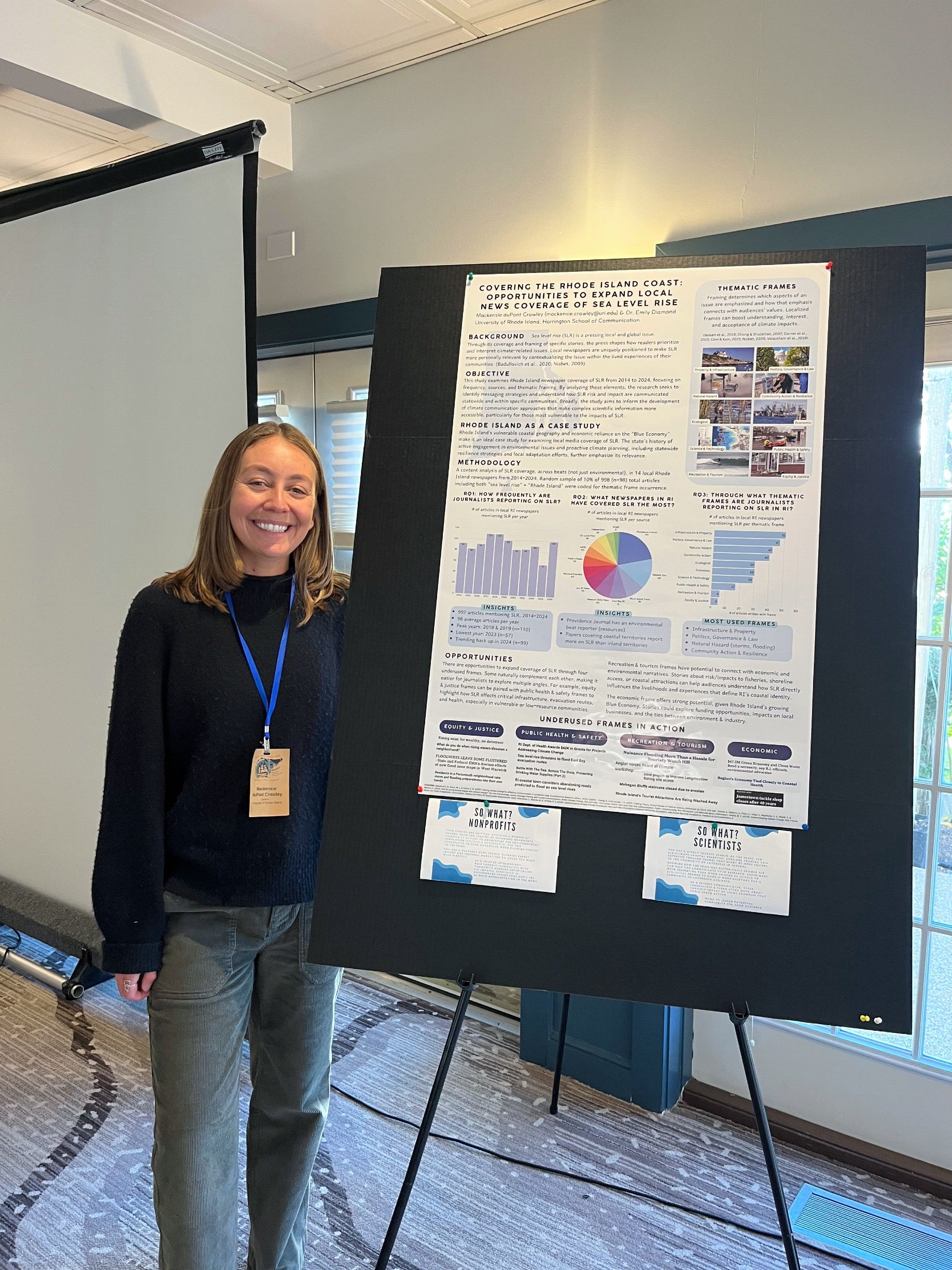Often, climate change is framed as an expansive global issue in journalism, looking past the impact of climate change on a local or individual level. Sea level rise (SLR), an ecological effect of climate change faced by all Rhode Islanders, is under-reported in the state because journalists are not equipped with the tools and knowledge to effectively write about SLR. Mackensie duPont Crowley, a DWELL Lab affiliate, is gathering data on the frequency of local reporting on sea level rise in Rhode Island over the last 10 years, and examining how the issue is most commonly framed by journalists.
In journalism, framing means the lens or perspective through which a story is written. “The framing used shows what stories are being told and how people are seeing their own lived experience in the news,” says Mackensie. When it comes to sea level rise, Mackensie has found that Infrastructure and Property as well as Politics and Government were the most commonly used frames, while Equity, Justice, and Public health were among the least common frames, even though they are equally pressing.
This past year, Mackensie has collected data on the reporting of exclusively sea level rise in 14 Rhode Island newspapers. Using DWELL’s SciComm award funding, Mackensie was able to present her initial findings at the NEOSEC Ocean Literacy Summit in Maine, a conference “connecting scientists, educators, and community leaders to critically think about equitable collaboration, share best practices, and provide networking opportunities.”
This coming year, Mackensie will interview journalists to learn more about the gaps in knowledge on the subject, and what tools would be most helpful to journalists reporting on environmental issues. “What I’m trying to figure out in these journalist interviews specifically is what resources they need so that they feel like they can report on these issues effectively with depth.”
Using her data and interviews, Mackensie will create a Storymap of resources– databases, political contacts, sea level rise visualizations– so journalists can do the topic justice and write about sea levels rise in a way that resonates with RI citizens. “I hope to just generally break down some of the complexity of the science, just from the get go, so that journalists feel like they can report on this thing without being afraid of the complexity,” says Mackensie. “The complexities I’m finding are sometimes a barrier. I hope with the Storymap to show how that equity and justice frame can be used and make it more approachable.”
The Storymap will focus on how journalists can tell SLR stories through underused frames, like Equity & Justice. Mackensie also aims to implement a sea level rise visualizer, referencing this NOAA visualizer, for journalists to picture the drastic effects of SLR. In the future, Mackensie will present her Storymap at conferences, sharing the tool with journalists, researchers, and scientific communicators across the state to reform the framing of sea level rise in Rhode Island.
Journalism puts information gathered from complex research into the hands of the public. The way an issue is framed, especially when it comes to climate change, affects how people will take action and their understanding of the issue in their own lives. Through this project, tools will be compiled so journalists can explain sea level rise in a way that resonates with every Rhode Islander, making the issue personally relevant to vulnerable communities and preparing each citizen for the future changes brought on by sea level rise.

